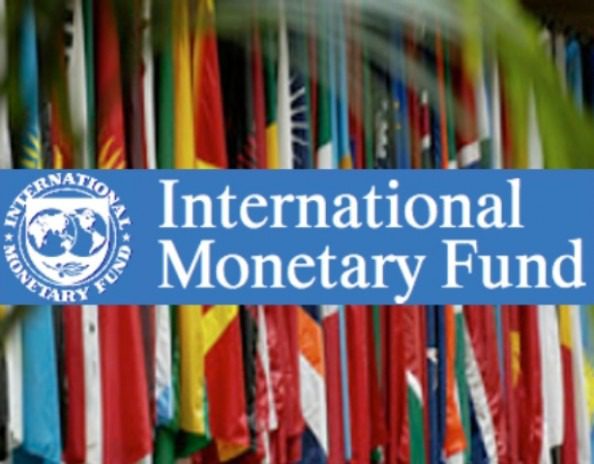Democracy & Governance
How To Win Elections In Nigeria – PMB As A Case Study -By Kolade Malik Ademola

“Fear the North, for Nigeria is the North” – anonymous
In the absence of the credibility and effectiveness of Presidential Debates in Nigeria, either it seems inconsequential or not, there has always been determinants to winning presidential elections in Nigeria. These determinants may either vary from ethnic groups to individual personality, and a host of others. Over the years in Nigeria, juxtaposing between these determinants and the presidential elections, either a good or relatively better rapport with the North had always given President Muhammadu Buhari the edge to win elections or come in as runner up with a substantial number of votes.
Since the transition of power from the military regime to the democratic era, and the time that commenced the race for Presidency for President Muhammadu Buhari, he has been getting an overwhelming number of votes from the North. In the Presidential Election in 2003, President Muhammadu Buhari had 32% of the total valid votes, where he won with landslide margin in Bauchi, Borno, Gombe, Jigawa, Kano, Katsina, Kebbi, Sokoto, Yobe, Zamfara – ten states out of twenty Northern states, FCT inclusive. In the case of the other Northern states where he lost, it was with a relatively close margin. Thence, Olusegun Obasanjo, with the influence of the other region emerged as the President of Nigeria.

Conversely, the 2007 presidential election that put the late Umaru Musa Yar’Adua as the president had its credibility of free and fair election questioned by bodies and agencies-alike. Despite the questioning of this credibility, President Muhammadu Buhari could amount a total vote of about 12 million, all of which evidently came from the overwhelmingly North, thence, putting President Muhammadu Buhari as a runner up as against Umaru Musa Yar’Adua’s about 24 million votes which came from the rigged election in South-Eastern, South-Southern, and South-Western states.
In the same vein, the 2011 election that saw Dr. Goodluck Ebele Jonathan emerged as the president of Nigeria, President Muhammadu Buhari won 12 out of the 20 Northern states, FCT inclusive with the Rhinoceros-like votes, while Dr. Goodluck Ebele Jonathan, alongside all the South-Southern, South-Eastern, South-Western states, won Benue, Taraba, Nasarawa, Adamawa, Kwara, Plateau, Kogi, and FCT – the rest of the eight Northern states. Though, President Muhammadu Buhari might have lost the elections, but he gallantly had massive votes from the North, but a fewer votes from the South and the West.
You might want to ask what had precipitated President Muhammadu Buhari’s lost three consecutive presidential elections despite claiming the victories from the North? Here is the answer.
In the 2015 presidential election, consequence of the amalgamation of the Congress for Progressive Change (CPC) and Action Congress of Nigeria (ACN), the coalition apparently was a factor that aided President Muhammadu Buhari’s win, but it wasn’t the determining factor. What then is the determining factor? As the usual, with much added stronghold of reinforcement, President Muhammadu Buhari won 16 out of 20 Northern states as against the 10, 12 states in the previous elections and 5 out of the 6 South-western states as against the zero states won in the previous elections. Similarly, Dr. Goodluck Ebele Jonathan won all the rest of the states constituting 4 Northern states namely Taraba, Plateau, FCT, and Nasarawa – the simple minority of the Northern states.
The first deciding factor was the shift of interest, more preferably referred to in my conception as change of ally. It was the motive of power-grab from the 16 years grasp of People Democratic Party that at first led to a coalition. The then coalition led to President Muhammadu Buhari having his first set of ally from the South-western states, and also stretching his tentacles across the entire Northern region, making him the King in the region – North. Those, inconsequentially, are the first and second theory of winning presidential election in Nigeria – be a friend of the North, or be the King in the North, and Have a few ally in the West.
In spite of the above, the third theory of winning election in Nigeria is setting up disruptions in the South. Despite the South’s population is meagre compare to the North, the South in their capacity, without any form of hindrance, always tend to produce votes in millions. With respect to the 2003, 2007, and 2011 presidential elections in Nigeria, the prominent and populous Southern states, examples Rivers, Delta, Cross River, Imo, and Enugu, produced votes in millions or a few thousands to millions. On the contrary, the 2015 election that brought President Muhammadu Buhari as the President of Nigeria had the South producing a lesser amount of votes with exemption of Rivers and Delta states having about a hundred thousand votes above a million, as against the previous years.
In the same vein of the 2019 Presidential Election, affirming the assertion of disruption in the South as the third theory of winning elections in Nigeria, none of the South-eastern and South-southern states recorded a total votes of a million. With regards to the populous states in the regions, which are Delta and Rivers, both recorded in favour of PDP’s Atiku Abubakr, a total valid votes of 594,068 and 473,971 respectively – a catastrophe to the millions of votes as always recorded in the previous presidential elections in Nigeria.
Imperatively, adopting the three theories of winning elections in Nigeria, President Muhammadu Buhari being the King in the North won 15 states out of the 20 states in the North, FCT inclusive, with a total vote of 11,700,033 – nearly a double of the total votes recorded in the South-eastern and South-southern states. Also, being an ally of the South-west, he won 4 out of the 6 states with a total vote of 2,036,450. And with the disruption in the South-east and South-south, he won zero state but also hinder his counterpart, Atiku Abubakar from winning with landslide margin. Though, President Muhammadu Buhari might have won zero states in those region, but he had a total vote of about 2 million, as against Atiku Abubakar having a total votes of about 9 million. This is evidently incomparable to the margin that occurred in the North.
In conclusion, with a stern reiteration of the three theories of winning elections in Nigeria – Be a friend of the North or be the King in the North, Have a few ally in the West, and Cause a little disruption in the South. By so doing, negligence of the effectiveness of presidential debates, and everything being equal, any presidential candidate that makes strict adherence to the theories herein, may inadvertently emerge victorious.
In the end, whether we fail to accept the fact or not, the North is a determinant to winning presidential elections in Nigeria. So fear the North, for the North is Nigeria.


















